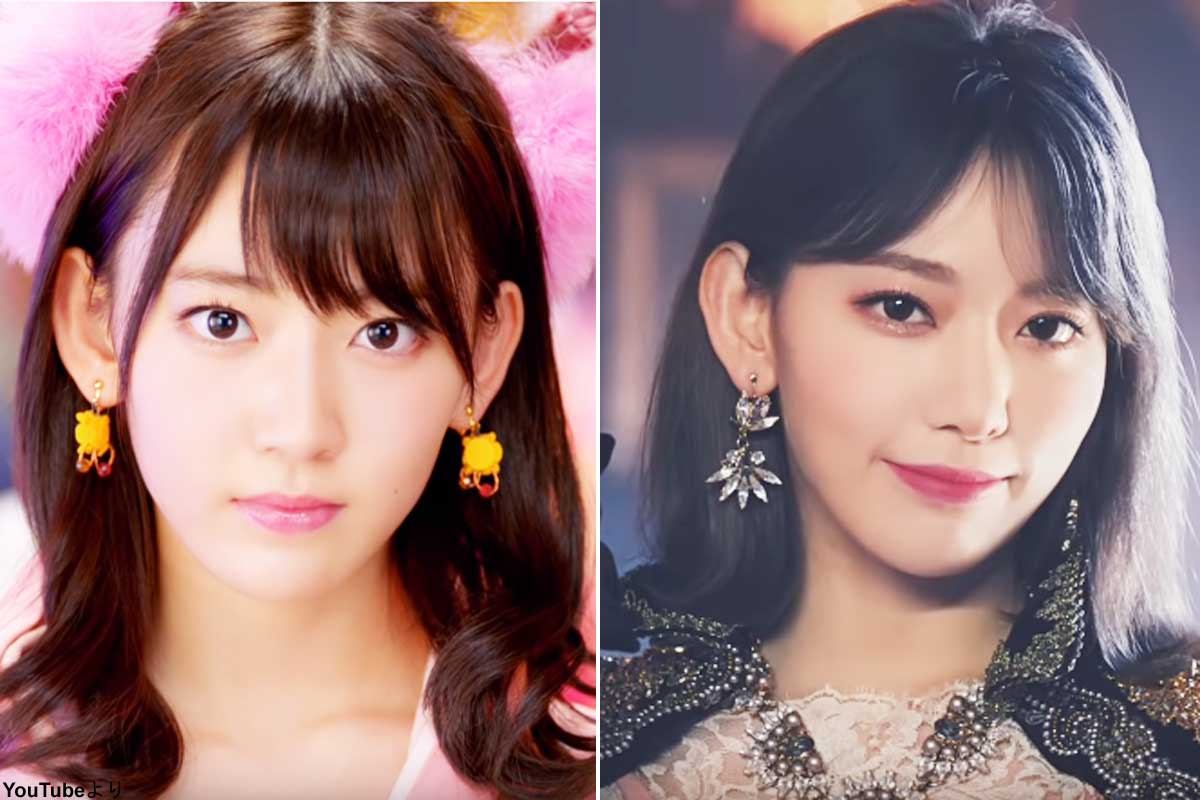Groups
Sakamichi Series: Nogizaka46 Sakurazaka46 Hinatazaka46
WACK Groups: BiSH
Japanese Idols News and Knowledge Base
Japanese Idols News and Knowledge Base

Japanese idol groups and K-Pop have become increasingly popular not only in their respective countries but also worldwide. While they may be geographically and culturally distinct, there is an undeniable connection between the two. In this article, we will explore the similarities and differences between Japanese idol groups and K-Pop and examine how they have influenced each other.
Japanese idol groups are musical acts that consist of young performers, usually in their teens or early twenties, who are marketed for their cuteness, talent, and personality. They often sing and dance to upbeat, catchy pop songs and are known for their synchronized choreography and elaborate costumes. Some of the most popular Japanese idol groups include AKB48, Morning Musume, and Nogizaka46.
K-Pop, short for Korean pop, is a music genre that originated in South Korea. It is characterized by a fusion of Western pop music, hip hop, and electronic dance music, and features groups or artists who sing and dance to choreographed routines. K-Pop is known for its high production value, elaborate music videos, and its emphasis on group dynamics and teamwork. Some of the most popular K-Pop groups include BTS, BLACKPINK, and EXO.
One of the most apparent similarities between Japanese idol groups and K-Pop is their focus on group performances. Both types of groups prioritize the synchronization of dance moves and harmonization of vocals to create a cohesive and entertaining performance. They also both value the individual members’ personalities and their roles within the group dynamic, with each member having a distinct identity that fans can connect with.
Another similarity is the rigorous training that both Japanese idol groups and K-Pop groups undergo. Trainees must undergo years of training in singing, dancing, and performance before they can debut, with the goal of producing polished and talented performers. This training process is similar in both countries and is a significant factor in the success of these groups.
Despite their similarities, there are also some significant differences between Japanese idol groups and K-Pop. One of the most significant differences is the way they market their groups. While Japanese idol groups are often marketed for their cuteness and girl-next-door appeal, K-Pop groups are marketed for their fierce, confident, and stylish images. K-Pop’s more edgy and sophisticated style often appeals to a wider global audience, while Japanese idol groups are more focused on their domestic market.

Another difference is the way their companies operate. Japanese idol groups are often part of a larger entertainment company that controls their marketing and image. K-Pop companies, on the other hand, tend to have more control over their artists’ careers, with some even owning the rights to their name and image.
Although K-Pop has developed its unique style and identity, it is impossible to ignore the influence of Japanese idol groups. Many K-Pop groups have incorporated elements of the Japanese idol culture into their performances, such as cutesy dance moves, colorful outfits, and catchy pop songs. Some K-Pop groups, such as TWICE, have even been compared to Japanese idol groups for their cute and charming images.
While Japanese idol groups have been around much longer than K-Pop, there is no denying the impact that K-Pop has had on the Japanese music industry. Many Japanese idol groups have adopted a more K-Pop style, with more focus on sophisticated visuals and high-quality production values.
In conclusion, Japanese idol groups and K-Pop share many similarities and differences, but the two have undoubtedly influenced each other over the years. While K-Pop has been heavily influenced by Japanese idol groups, the Korean music industry has also made a significant impact on the Japanese music industry. The two industries have created a global phenomenon that has captured the attention of fans worldwide.
The connection between Japanese idol groups and K-Pop is a testament to the power of music to transcend cultural and geographical barriers. Fans around the world have embraced the music, the performances, and the personalities of these groups, and have made them a global sensation. With the continued growth and popularity of both Japanese idol groups and K-Pop, it is clear that their influence will continue to spread and evolve in exciting new ways in the future.